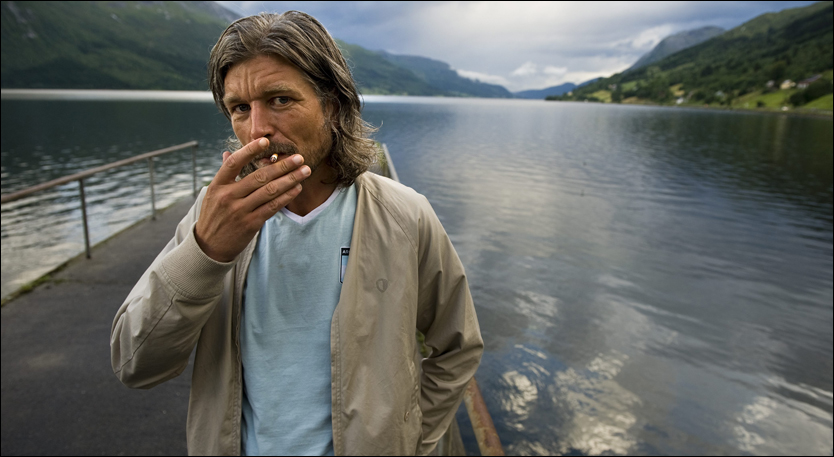Three years ago I decided, against the stomach brain of intuition, to go back to school, and become part of a university, a university not unlike this one. And I wrote this sentence:
“Perhaps inevitably, after all these years living in the universe of my computer, I am struck by the gravitational pull of my new home, this university. One of the ways it seeks to replicate itself, like any good virus, is through language, itself a social viral activity. It’s hard not to be struck, for instance, by the acronymization of language — fyi I’m an mfa with a 1/4ta omg — all those dreaded English words no longer need to be spoken, like the name of God in the Jewish religion.”
I’ve been here only a few hours, but I’ve heard the work that I do, and the work that others around me do, re-described as research. And it made me wonder: what is research? Re, the prefix, has a Latin derivation, and it means to do something again, it signifies a backwards motion. It’s a tone in music, and also an acronym for Real Estate, Reformed Episcopal, Religious Education, Right Excellent and Royal Engineers. It also has something to do with regarding, in regard to, concerning. It’s a word that is also a pointer.
And then there is searching. I guess I must have lost something, why else would I be looking for it? Why else would I be searching? And I haven’t only lost it once, I seem to lose it again and again, and this prompts: a re-searching. The backward movement that is the forward movement. It’s a kind of music, a kind of real estate. I think this is a beautiful challenge: how can I lose something again and again? Maybe I never had it in the first place.
What I think the word “research” is inviting me to embrace is a form of not knowing, and I think this is so important. If I’m going to do research in this room, it’s important for me not to know what’s already going to happen in this room. What have you already decided, before you walked in today? Whose face have you seen and already checked out, what have you already decided to believe and not believe?
The usual program or aim or schtick in a place like this, in rooms like this one, is that we’re going to come here in order to know more, in order to accumulate, to grasp. But as the words of the university so helpfully remind us: we are also here not to know, not to accumulate. We’re also here to get lost, again and again.
Here is Shunryu Suzuki about this question of not-knowing. He writes, “In the beginner’s mind there are many possibilities, but in the expert’s mind there are few.” it makes me wonder: are the rooms in this university designed for the beginner’s mind, or the experts? Am I standing here because I know more than you do, or have the organizers broken with tradition and decided to invite someone who knows so much less than every person here?
Because it’s impossible for me to imagine writing a book, I started writing one with someone else, that way, when my ideals come over to crush me again, I can just point at my collaborator and say: it belongs to him. It’s been a very helpful way to deal with the impossible. His name is Chase, he has a new name and a new identity that sometimes leads him to ask questions like this.
Chase: How much of your method of making movies can be described as a (never-ending) quest to make “that film?” The one that tells it, the one that shows it, the one that makes it make sense to you, or perhaps to other people?
I replied like this: What I hear you asking is: how can you set out on a trip making sure never to arrive? Let’s hope it’s a bon voyage because we’ll never stop making it. If artmaking is a “never ending quest,” as you describe, perhaps part of the hope in setting off on the journey is that it never finds home. It makes me wonder if making movies, or making art, or having this conversation, is another way of leaving home, again and again, caught in the perpetual wave of departure. Never mind the GPS or the insatiable desire to map every geographical moment (our colonizers have returned as computer geeks), never arriving means always being a little bit lost. Doesn’t it? If I weren’t lost more than occasionally in the work’s making, wouldn’t I arrive at The End with speed and efficiency. I think this is what Picasso meant when he said, “I don’t search, I find.” In Godard’s Prenom Carmen (1982), Godard answers this quip, playing a doddering, lecherous filmmaker offering advice to his niece who is trying to use his potential film comeback as a smokescreen for a bank robbery. He’s also suggesting of course that making films, or at least large films, is a form of bank robbery, an anti-business that he would like to get back into. Godard states simply, “Il faut que chercher.” One must search. The necessity of searching, of asking questions that do not resolve tidily into answers, might be necessary cargo in a voyage that doesn’t end. How can one search if one isn’t lost? If one must search, then there might also be an injunction to get lost, like in the old schoolyard expression: get lost! Can you be a little bit lost or is it an either/or proposition? You can’t die a little bit, you can’t be a little bit of a son. But if this artist is interested, as you suggest, in going on and on, in a chase scene attached to an object that will never arrive, then it’s important I guess not to arrive too early, or not to arrive at all.
Darian Leader: “Freud’s sublimation theory is about an ongoing activity rather than a finished product, and it implies that there are many artists busy not finishing works of art. It is significant here to remember that Freud’s real interest in the study of Leonardo was in exactly this question of completion, of finishing things. Whether Leonardo’s works were actually finished or not is less important for Freud than the artist’s feeling that he had left something unfinished.”
Last month Harbourfront hosted the International Festival of Authors, and there were many maestros of the page but none more luminous than Karl Ove Knausgard, the cultural phenom who has written no less than six 500 page books, all of them a single work he calls Mein Kampf, My Struggle. It is about absolutely ordinary things: childbirth, marriage, the death of his father, and it has been read by something like fifteen percent of the Norwegian population, and is a raging bestseller all over the world. Karl was interviewed a couple of times at the fest, and the most important thing he said, in that beautiful mellifluous voice that made me want to jump into his arms, was about how he wrote these books. It began with the death of his father, which was terrible and strange and liberating, and when it was happening he knew that he would have to write about it. So he set out to write, he went to work each day just like you would go to the office, and he worked every day for four years. And every day he failed. He tried everything he had, he used every trick and talent and strategy, he poured out his guts, as he told us, “I was a desperate man.” As he told us, “I would have given my arm to write this book.” Nothing worked. I’m not a writer. I can’t. All I can do is fail. When he had come to the end of his exhale, once again, when he was past the point of giving up, he decided he would start over and write a few pages about his father’s death, simply narrating the events as quickly as he could, as thoughtlessly as he could, what exactly happened. He wrote four or five pages and then he sent them to his editor, a man with whom he has a very close and intimate and unusual relationship, and his editor was shocked, he said well Karl of course it’s very powerful but you can’t write any more, no one could publish this, it’s far too personal, it’s scandalous, too close to real life. And then he started writing, page after page, book after book. Six books, five hundred pages each.
What people at this festival, what people in this culture are interested in: are the six books, the hundreds of pages. The visible, the manifest, could we call it the symptom? But Karl insists that that the years he spent in absolute frustration, and not writing, and the years he spent writing one page after another, are deeply related. I think Karl was telling us that you can’t have an inhale without an exhale. Though in this culture, we seem to value only the inhale. I want more, and more and more, I want to take it all in. When will we make time for the exhale, to digest our experience? Karl insists that the only way he could write, was by not writing. So I posed this question to him. What if you were going to make a school, a school like this one for instance, and you wanted to teach people how to write, could you design a suite of courses that would be designed to frustrate its students? If we could understand creativity as the very origin, the very seat of creativity, could we make that the founding principle of our education? And if we could, what would that education look like? The brick and mortar of frustration.
Are we really interested in being creative it made me wonder? Do we want to plunge into all that frustration? Or are we interested in knowing how other people did it, how to follow a recipe for instance. There’s nothing wrong with recipes, I love them, but at some point, you have to put someone else’s book away, and you have to start cooking for yourself. Otherwise you’re only making meals that belong to someone else, and as we know too well, those meals usually include a heady dose of power and hierarchy and colonialization. Our oldest stories, our oldest fears, we receive them over and over again in our recipes of language, our recipes for how we should be seated in a room, our recipes for who should be speaking, and who should be not speaking. Our recipes for what is important, who belongs on the front of the national newspaper, and who should never be seen in that place. What would a newspaper dedicated to not knowing look like? What would a university look like? What would your life look like, if you weren’t so very sure about who you were, and what you wanted, and what absolutely had to happen?



